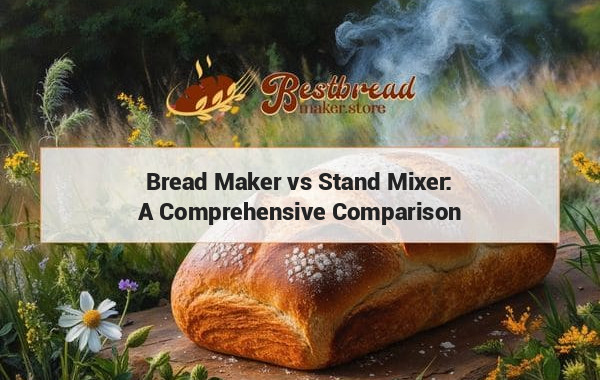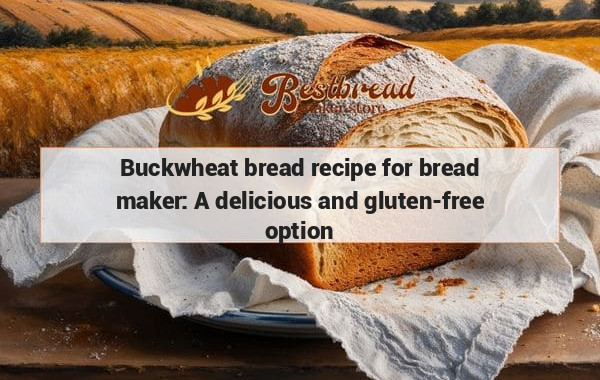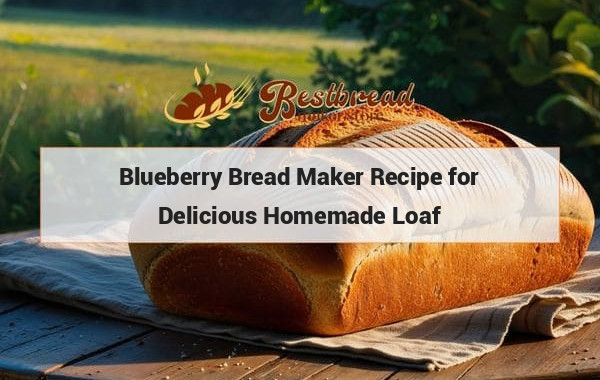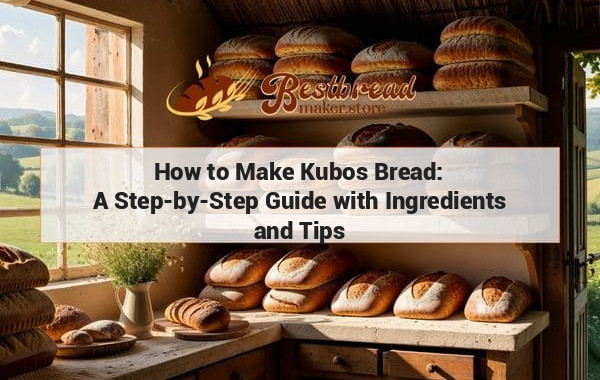Bread Maker vs Stand Mixer: A Comprehensive Comparison
When it comes to choosing between a bread maker and a stand mixer, it ultimately depends on your baking needs. A bread maker is perfect for effortlessly making homemade bread with minimal effort, while a stand mixer is versatile for various baking tasks such as mixing dough, whipping cream, and more. Consider your baking preferences and requirements to determine which appliance suits you best.
Bread makers and stand mixers are both essential tools for home bakers, but choosing between them depends on your baking needs and preferences. While bread makers offer convenience, stand mixers provide versatility. Here's how to decide which is best for you.
Key Takeaways
Bread makers excel in simplicity and ease of use, handling the entire bread-making process. Stand mixers, on the other hand, offer greater versatility for those looking to bake a variety of foods beyond bread. Your decision will largely depend on how much control and versatility you need in your kitchen.
Bread Maker vs Stand Mixer: Which One Is Best for You?
When it comes to baking at home, the choice between a bread maker and a stand mixer isn't always straightforward. Both have their own strengths, and your decision should be based on what type of baking you do most often. Let’s break down the key features and advantages of each to help you make the right choice.
Bread Maker: The Convenient All-in-One Solution
Bread makers are a one-stop solution for those who want fresh bread with minimal effort. These machines do all the heavy lifting, from mixing the dough to kneading, proofing, and baking.
How Bread Makers Work
Bread makers are straightforward. You simply add your ingredients, select a setting, and the machine does everything else. The beauty of a bread maker is in its ability to automate the process, which saves you both time and effort.
Key Benefits of a Bread Maker
- Ease of Use: Bread makers simplify the baking process. Whether you're a beginner or just don’t want to spend hours making bread, this machine makes life easier.
- Minimal Effort: All you have to do is measure out the ingredients. The machine handles the kneading, rising, and baking.
- Consistency: Bread makers are incredibly consistent, ensuring that each loaf is baked to perfection with minimal oversight.
Stand Mixer: The Versatile Kitchen Workhorse
Stand mixers, on the other hand, are perfect for bakers who want more versatility. While they require a bit more hands-on work compared to a bread maker, their versatility goes far beyond just bread.
How Stand Mixers Work
A stand mixer allows you to mix, knead, and whip ingredients, but it stops short of the baking process. This means you’ll need to manage tasks like rising and baking manually.
Key Benefits of a Stand Mixer
- Versatility: Beyond making bread dough, stand mixers can handle tasks like whipping cream, making cookie dough, and even pasta. It's a multi-purpose tool.
- Control: With a stand mixer, you can control the process more closely. If you enjoy being hands-on with your baking, a stand mixer will allow you to fine-tune your recipes.
- Durability: Stand mixers are often more durable and long-lasting, making them a great investment for frequent bakers.
Which One Should You Choose?
Your choice between a bread maker and a stand mixer should come down to your baking style and preferences. If you want to simply bake bread with minimal effort, go for a bread maker. But if you're looking for a tool that can do more than just bread and allows for more control, a stand mixer is the better option.
Pros and Cons at a Glance
| Bread Maker | Stand Mixer |
|---|---|
| Pros | Pros |
| Easy to use | Versatile for all kinds of baking |
| Minimal effort | Greater control over dough texture |
| Great for beginners | More durable and long-lasting |
| Cons | Cons |
| Limited to bread | More hands-on work required |
| Less control over the process | Doesn’t bake the bread |
Bread Maker vs Stand Mixer: Breaking Down the Differences
1. Capacity and Performance
Bread makers typically have a specific capacity, which is great for small households or those who just want a loaf at a time. A stand mixer, however, is more versatile in terms of capacity, allowing you to mix large batches of dough for multiple loaves or other baked goods.
2. Ease of Use
For someone new to baking or those who don’t want to put in too much effort, a bread maker is a perfect fit. Its automated process makes it easy to get fresh bread without the learning curve. On the other hand, stand mixers require you to manually handle tasks like rising, shaping, and baking, which could be more appealing if you prefer being hands-on.
3. Functionality
If your goal is purely bread, the bread maker is the best option. But if you want to do more, like make pasta, pizza dough, or cookies, a stand mixer is far more functional. You can even purchase additional attachments for tasks like grinding meat or making pasta, turning your mixer into a multi-functional kitchen appliance.
4. Price
Generally, bread makers are more affordable than high-quality stand mixers. However, if you bake frequently, the long-term value of a stand mixer could justify its higher price due to its durability and versatility.
Bread Maker vs Stand Mixer: Real-Life Scenarios
The Busy Parent
For someone with a hectic schedule, a bread maker is an ideal choice. It’s simple, quick, and gets the job done with little intervention. All you need to do is add ingredients, and your bread is ready in a few hours.
The Avid Baker
If you love experimenting with different doughs and recipes, a stand mixer provides the control you need to adjust and perfect your results. With the right attachments, a stand mixer can take your baking to the next level, allowing you to make anything from brioche to sourdough with ease.
What About the Best Bread Maker?
When it comes to choosing the best bread maker, bestbreadmaker.store is an excellent resource. They offer in-depth reviews and comparisons of the top models, helping you find the right machine for your needs.
Frequently Asked Questions (FAQs)
1. Can a stand mixer replace a bread maker?
While a stand mixer can mix and knead dough, it doesn’t bake the bread. A bread maker, however, handles everything from mixing to baking. If you want an all-in-one solution, a bread maker is better. For versatility, go with a stand mixer.
2. Is a bread maker worth it if I already own a stand mixer?
Yes, especially if you bake bread often. Bread makers simplify the process and save time. However, if you’re willing to handle the baking process manually, your stand mixer can still be an excellent tool.
3. How long does it take to bake bread in a bread maker vs using a stand mixer?
A bread maker typically takes 3 to 4 hours to bake a loaf of bread. If using a stand mixer, the kneading will take around 10 minutes, but you'll need additional time for rising and baking, which can stretch the total time to 5 or more hours.
4. Can you make other types of dough in a bread maker?
Yes, most bread makers have settings for pizza dough, cakes, and even jam. However, the flexibility of a stand mixer allows you to do much more than what a bread maker can offer.
5. Which option is better for beginners?
A bread maker is ideal for beginners because it requires less effort and provides consistent results. A stand mixer, on the other hand, requires more involvement but offers better control for those who want to expand their baking skills.
In conclusion, your choice between a bread maker and a stand mixer depends on your baking preferences and how much control you want over the process. Each tool has its strengths, and whether you opt for convenience or versatility, both are excellent choices for your kitchen. If you're in the market for a bread maker, be sure to check out bestbreadmaker.store for helpful reviews and recommendations on the best models available.








